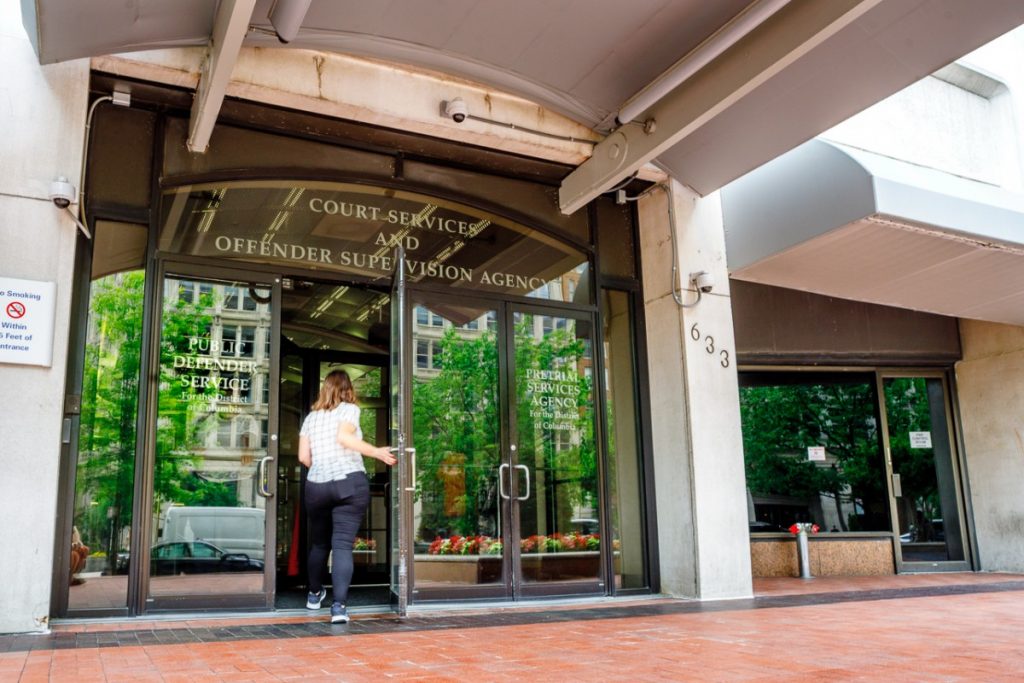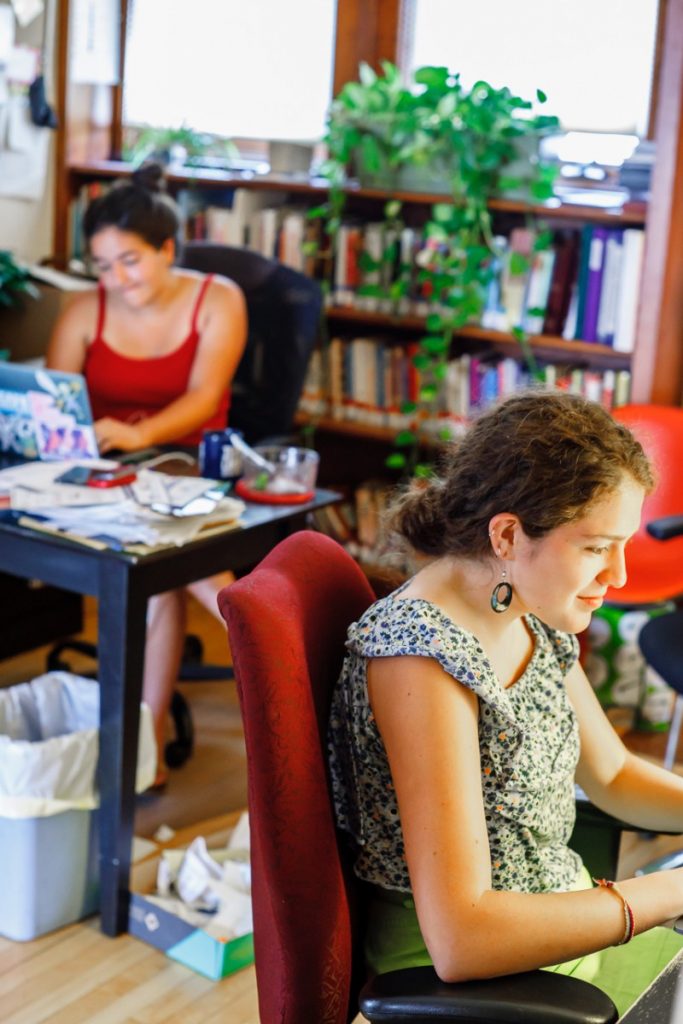Interns spend summers immersed in legal systems, share flaws of privileged access to justice
This is the third in a series highlighting the work of our CCE Privilege & Poverty Interns this summer, who are working in organizations, nationally and locally, that intentionally engage in issues of poverty.
In 1963, Gideon V. Wainwright expanded the universal right to an attorney to include any criminal case, not just capital cases as was the norm at the time. The need for public defenders was born in earnest.
At around the same time, Harper Lee mythologized the righteous lawyer as an advocate who speaks truth to power, even in defeat. Pop culture has scooped up this glamour for a century, from juror eight’s unofficial and unpopular stand in 12 Angry Men to Batman’s childhood love interest, the public defender Rachel Dawes.

This summer, P&P Interns locally and nationally are learning the grittier reality behind the legal system, a reality far, far away from the scripted battles of Law and Order: Special Victims Unit. Exorbitant lawyer fees that drive people to legal aid clinics. Criminalization of socioeconomic status and race. Archaic and esoteric legal jargon. Yet for all of the systemic faults they’ve seen, they continue to be hopeful about the future.
Mariel Edokwe ’20, was caught off guard when she began her work in Sunbury, Pennsylvania as a legal aid intern for North Penn Legal Services.
“This summer I’ve been incredibly surprised to see, firsthand, just how flawed our legal system is,” Mariel wrote to me in an email. “Law enforcement agencies are supposed to be impartial and I’m finding that, a lot of times, the opposite is true. This isn’t a fact that’s irreversible, but it’s something that more people need to be aware of in order for change to happen.”
Diana Diaz ’21, an investigative intern for the trial division of a public defender office in D.C., has noticed that, more often than not, navigating the legal system successfully comes down to an issue of privilege.

“The legal world is complex and inaccessible in many ways– it might be possible to learn the jargon and more with Google, but even then it is difficult to understand and manage. There are many issues people in poverty face in the legal system, [starting] with the language of the system they should be able to navigate.”
There are many issues people in poverty face in the legal system, [starting] with the language of the system they should be able to navigate. – Diana Diaz ’21
And the solutions? Not an easy sell, either.
“It’s a resource driven issue,” said Jena Santa Maria, a legal advocate for WomenSafe, a service here in Addison County that regularly steps into the courtroom for its clients. “We live in a political climate where resources for those in poverty are not given any priority.”
And yet, despite the surprise and disappointment from interns witnessing the injustice of our justice systems, despite what seemed like grim resignation at times, throughout our conversations elements of hope kept arising – driven, in large part, by the individual interactions of every day.

“Working within this system is far more than just investigating– there is an importance placed on client interaction. My partner and I spend hours talking to our clients, learning about their lives and at the end of the day trying to encourage them,” reflected Diana. “I feel confident to say that I am not the only one at that office that feels like this kind of ‘work’ is quite possibly the best part of the job.”
Mariel Edokwe relayed a similar experience – and placed a similar emphasis on human interaction: “Our clients come in wanting to be heard without judgement, and when we listen, it’s a win-win for everybody. I think that at the end of the day, it comes down to us all needing to be much, much better at humanizing one another.”
I think that at the end of the day, it comes down to us all needing to be much, much better at humanizing one another. – Mariel Edokwe ’20
Reporting and working in and among social service providers this summer, it is undeniable that the same struggle that Diana and Mariel express runs across the board. A lack of resources for those who need it most is simply the expression, the tip of the iceberg, of a culture unwilling to confront its societal flaws, its greatest failings.
We live in one of the wealthiest nations in the world: we don’t have to pull these resources out of thin air. My experience from this summer makes it increasingly apparent that our societal priorities have been off-kilter, and that we aren’t ready to confront the powers making that so. Yet, again and again, the social service workers I have interviewed relay that connecting with the people they work with is a great source of fuel for the fight. That might be a good place to start.
